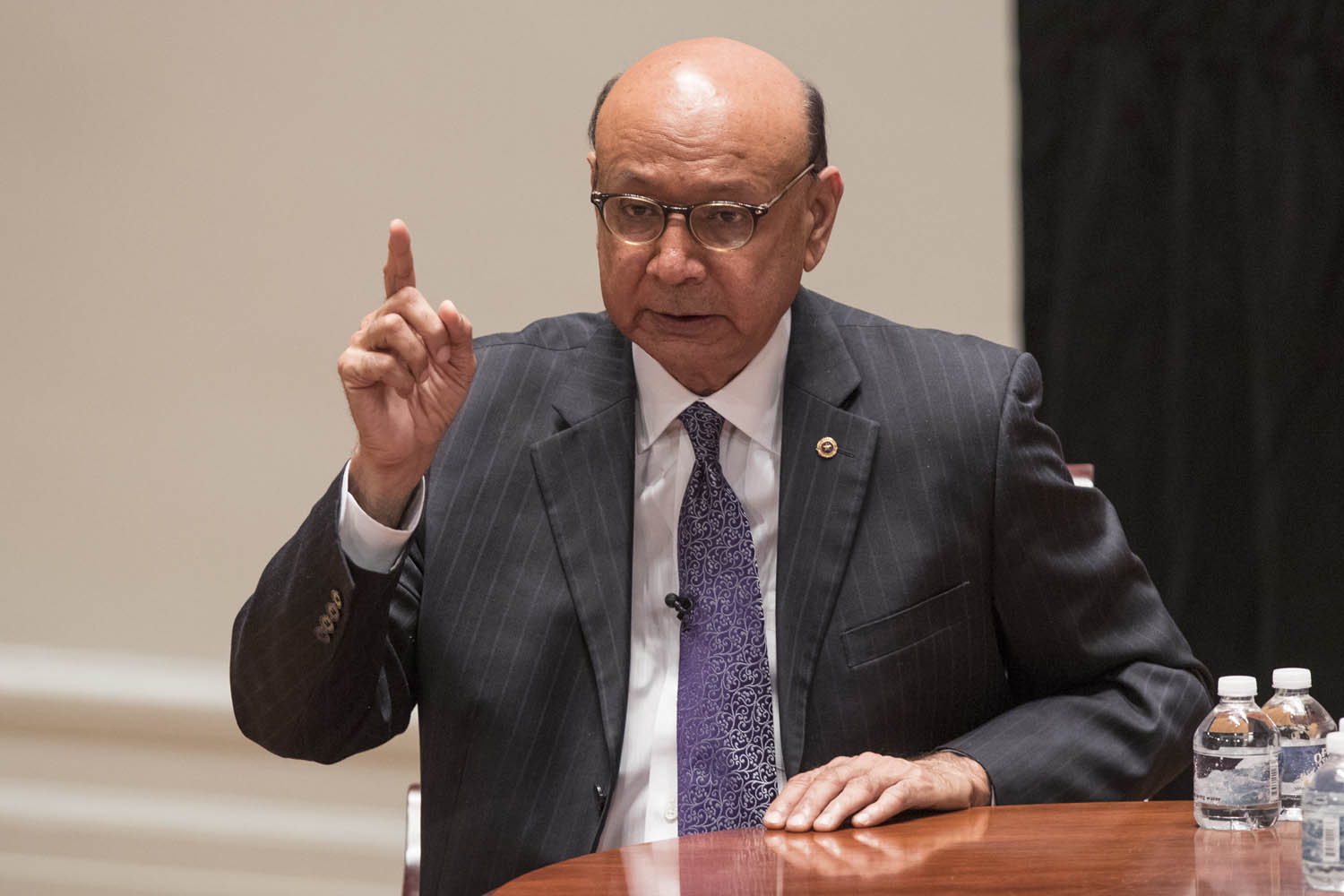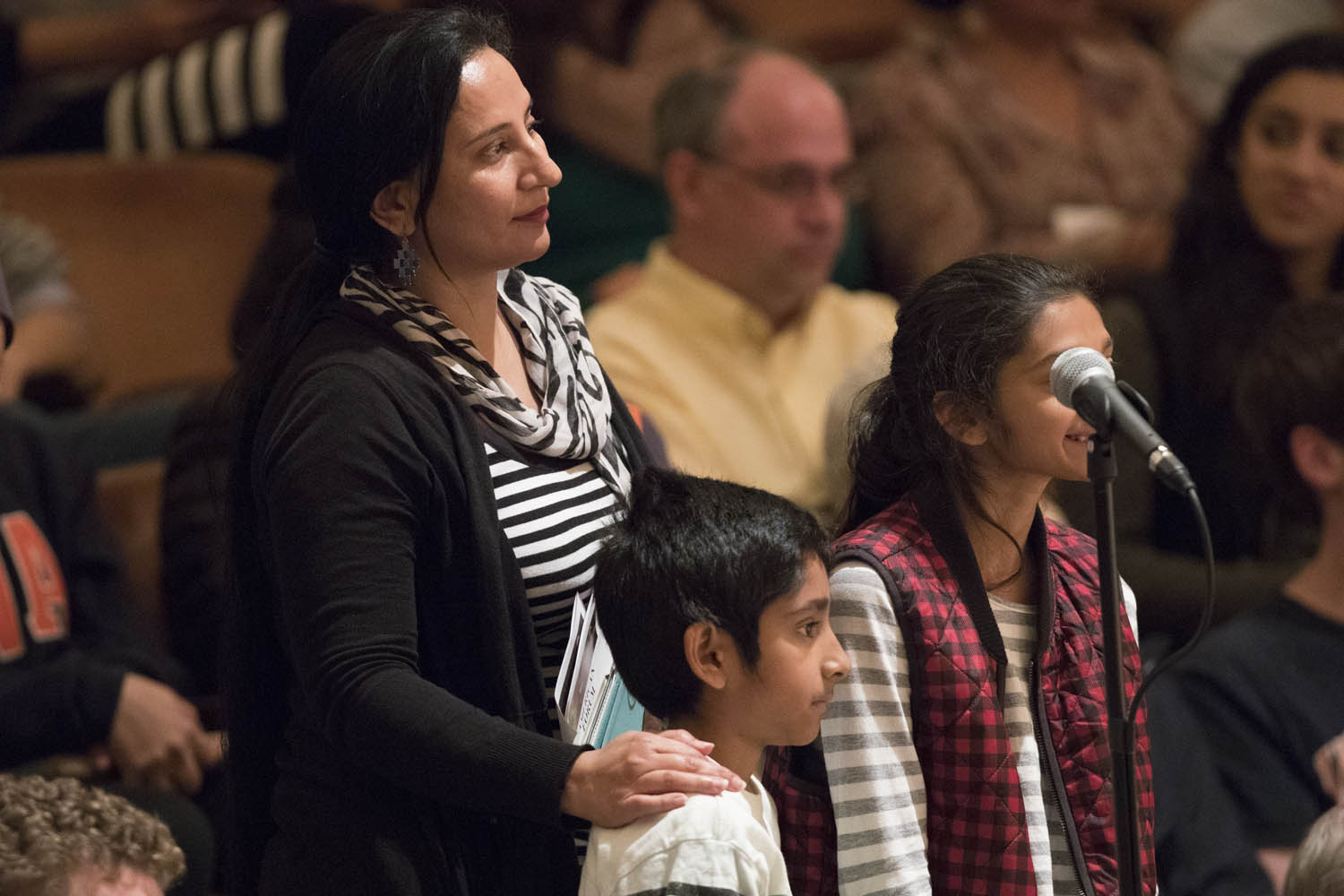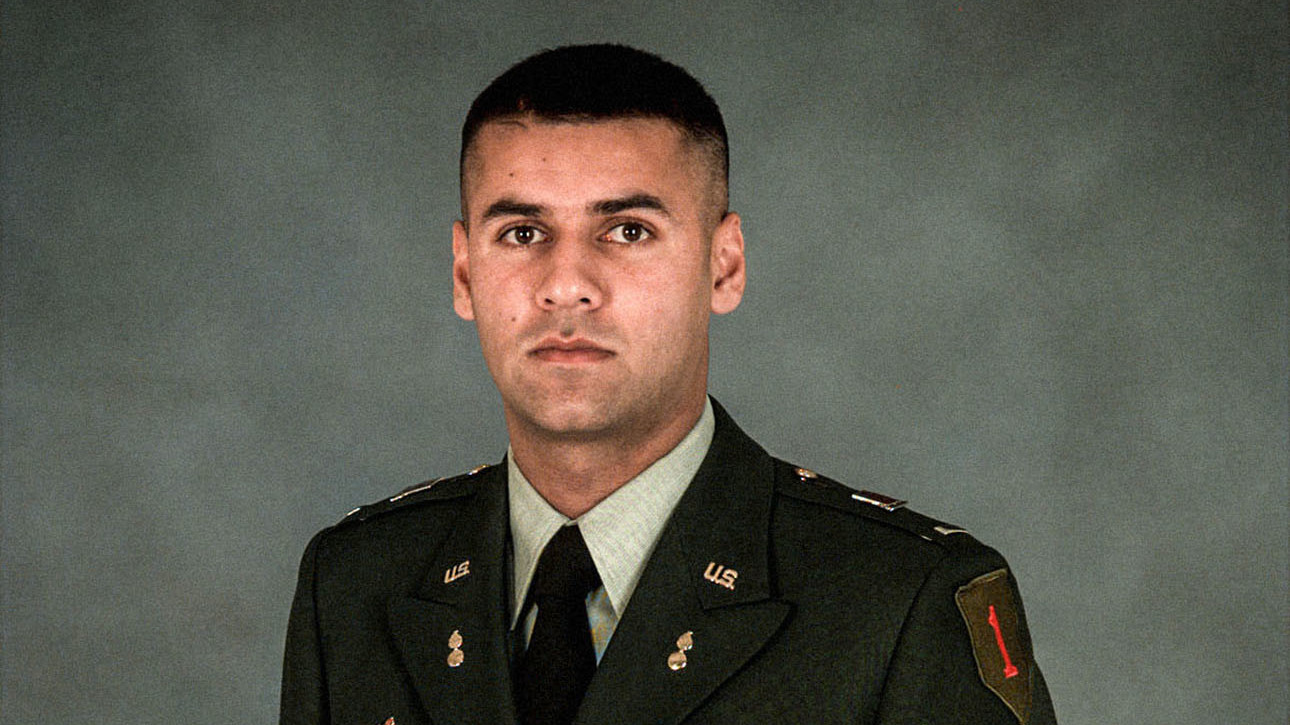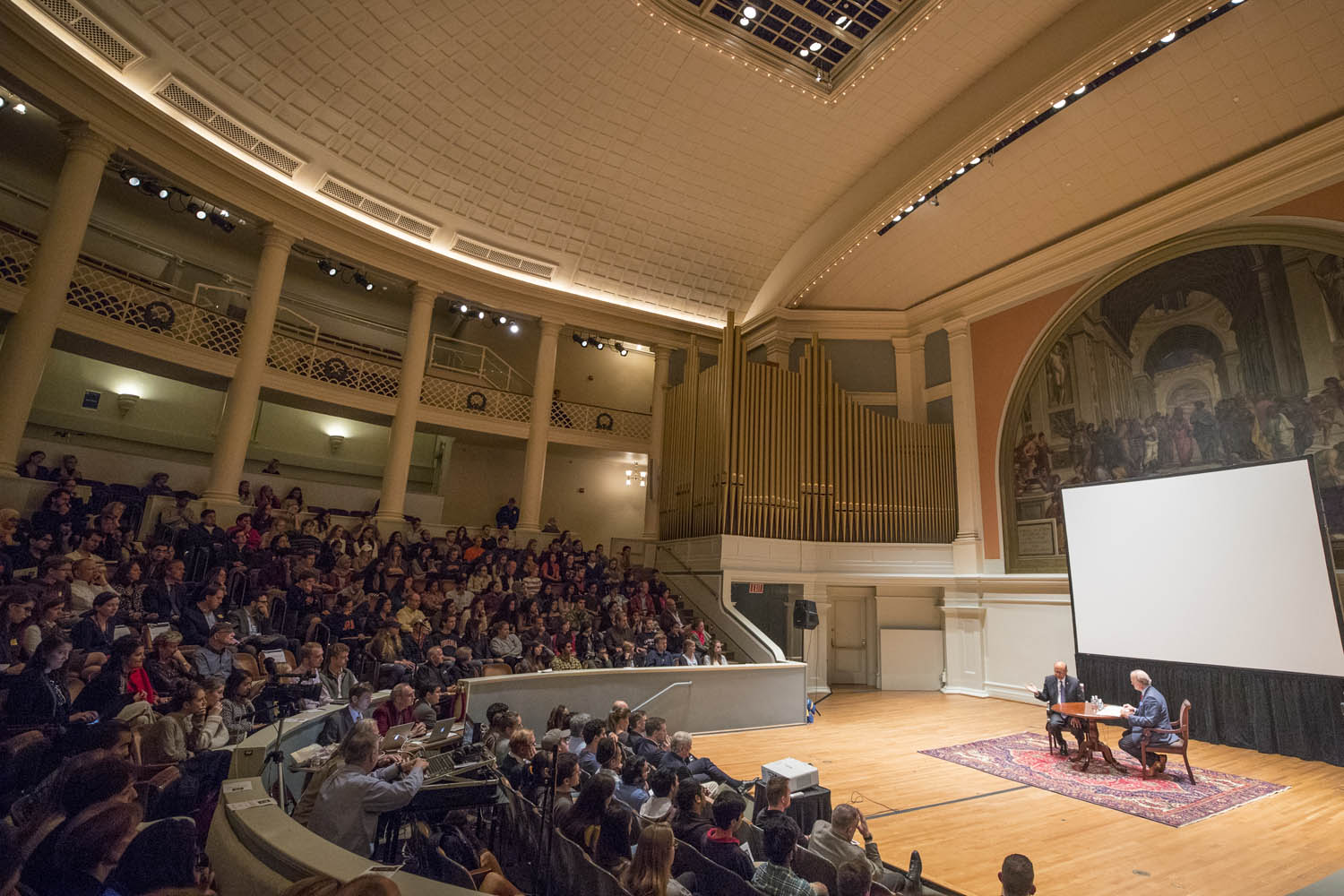Hundreds of students, faculty and members of the Charlottesville community gathered at the University of Virginia on Tuesday evening for a public conversation with Khizr Khan, the father of U.S. Army Capt. and UVA alum Humayun Khan, who was killed in Iraq in 2004.
The elder Khan rose to prominence when, standing with his wife Ghazala, he eulogized his son at the Democratic National Convention in July and waved his pocket-sized copy of the Constitution, which he carries regularly.
Khan was a guest of UVA’s Miller Center, a nonpartisan group that specializes in presidential scholarship, public policy and political history – it regularly hosts marquee speakers.

Khizr Khan spoke during a public conversation hosted by UVA's Miller Center on Tuesday evening.
For an hour and a half, Khan discussed his experiences and shared his perspective with the host of the Miller Center’s “American Forum” television program, Pulitzer Prize–winning author Douglas Blackmon.
Khan received a lengthy standing ovation as he walked to the center of the stage in nearly full Old Cabell Hall, clapping his hands together in prayer and bowing in thanks to the crowd.
Blackmon began the program by asking Khan about his family’s relationship with UVA. Khan said that his son, a Purple Heart and Bronze Star recipient, learned his dedication to service at the University.
“All of the qualities, service to others, service to this country, honor, dignity, respect for all, was learned within the four walls of this wonderful institution.”
Blackmon noted that many Americans truly believe there is a problem with Muslims and Islam itself and asked Khan what he would say to them. His answer: “My faith has been hijacked, and I condemn violence. That is not my faith.”
Khan said many different faiths and races have been tested and gone through difficult times in the United States, including Irish-Americans, Italian-Americans, African-Americans, Catholics and Jews. He said Muslims are being tested now.
During a question-and-answer session with the audience, a Pakistani-American woman stepped to a microphone with her two young children. “What message would you offer my children?” she asked.
“You are future leaders. Begin to think from now on how you are going to lead us in better directions,” Khan said. “Do well in school … learn and be very proud of who you are because this country loves you … determine from now on what you are going to do to make this world a better place.”

During the event, a mother asked Khan: “What message would you offer my children?”
Barbara Perry, the director of presidential studies at the Miller Center, said it is important to be engaged in conversations like the one with Khizr Khan, and the center encourages such conversations with people of all political stripes because it is a nonpartisan entity.
“It doesn’t mean the Miller Center cannot have as a guest speaker someone who is partisan,” she said. “But it means that we must represent both sides of the spectrum. So we had Bernie Sanders, John Kasich and Gary Johnson as speakers for our ‘American Forum’ speaker series.”
A Moment in Time
Khizr and Ghazala Khan, Muslims, took the stage at the Democratic National Convention at a time of perceived anti-Muslim rhetoric from Republican nominee Donald Trump. Still, no one could have predicted how their appearance would become part of the 2016 political canon.
“Tonight, we are honored to stand here as the parents of Capt. Humayun Khan, and as patriotic American Muslims with undivided loyalty to our country,” Khan said to rising applause and cheers in the convention center.
Soon, their appearance was dominating the headlines, catapulting them from obscurity to the national stage.
Paul Freedman, associate professor of politics, said there are two reasons the Khans’ appearance resonated so much. “Khizr Khan’s powerful address and directing his words to Donald Trump, waving that copy of the Constitution and the story of their son, represented a direct challenge to the rhetoric of Trump with respect to immigrants and with respect to Muslim-Americans,” he said. “Donald Trump’s response to the Khans just exacerbated the impact of their appearance because he basically responded to their remarks defensively and also aggressively.”
Since his appearance at the convention, Khan has started to campaign for Democratic presidential candidate Hillary Clinton.
Ties to UVA
Humayun Khan was born Sept. 9, 1976, and had two brothers, the younger Omer and the older Shaharyar, who also earned degrees from UVA in philosophy in 1998 and neuroscience in 2006.
Humayun began his college studies at the University of Maryland in the mid-1990s but eventually transferred to UVA, where he earned a degree in psychology in 2000 and was a dedicated member of UVA’s ROTC program.
Shortly after his death in Iraq, his parents moved to Charlottesville to be closer to their two other sons, who live in the city, as well as to the place where their middle child earned his college degree. The Khans quickly became enmeshed in the community and were soon hosting regular dinners for members of the ROTC.
“Every year they would have the cadets over to their house for dinner,” said Tim Leroux, who was the ROTC commander from 2009 to 2012 and is a retired lieutenant colonel. “They treated all of the UVA cadets like they were their own children. Mr. Khan would talk to them about love of country and the importance of the Constitution. He even gave every cadet a pocket copy just like the one he held aloft” at the Democratic National Convention, he said.
In 2004, Humayun Khan was remembered for his service in two military ceremonies at UVA. Speaking then, his father said his son made three major decisions in his life: to come to UVA, to join the ROTC program and then to join the U.S. Army. He said his son told him if he did not return, to remember what he wrote in an application essay to UVA’s Hereford Residential College: that sacrifice is crucial to liberty and democracy.

U.S. Army Capt. Humayun Khan
In a tribute to his service and sacrifice, a conference room at UVA’s ROTC headquarters is named in Humayun’s name. UVA also created the Capt. Humayun S. Khan Scholar-Soldier-Statesman Award, bestowed each year at the annual ROTC commissioning ceremony to honor that year’s outstanding soldier-scholar.
Media Contact
Article Information
November 1, 2016
/content/gold-star-father-muslim-uva-alum-talks-inclusion-tolerance-public-forum-old-cabell-hall

